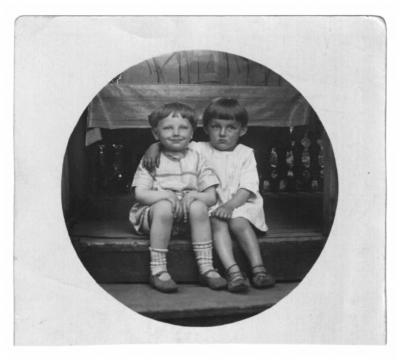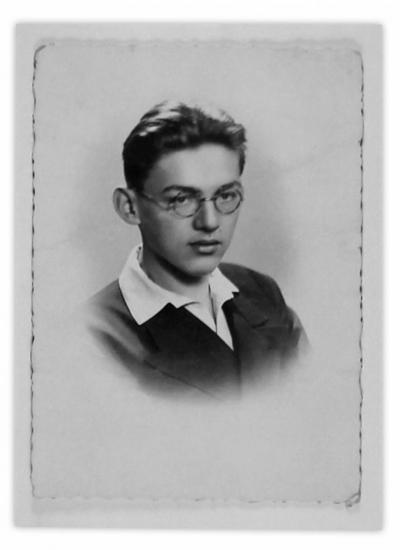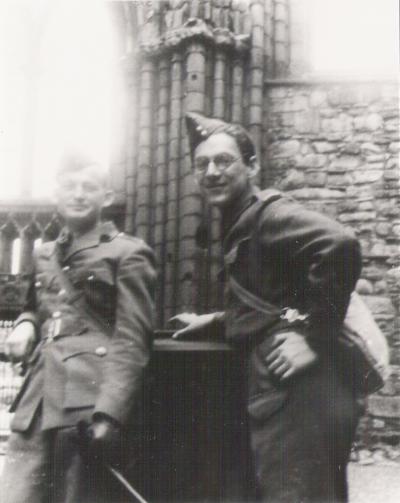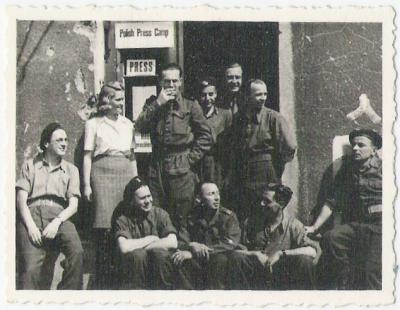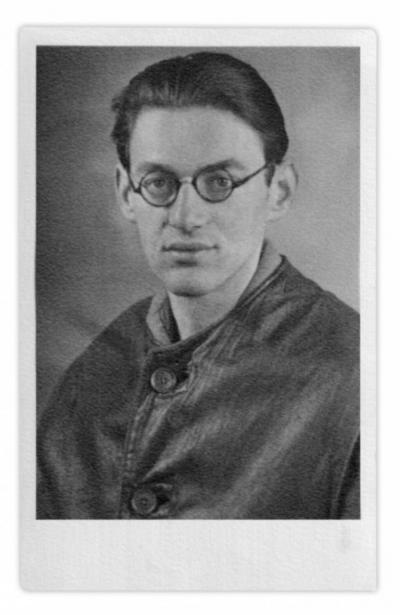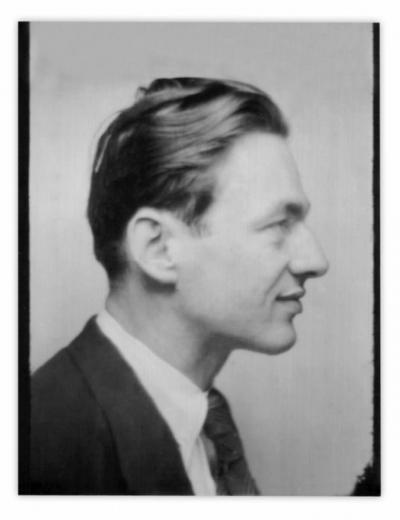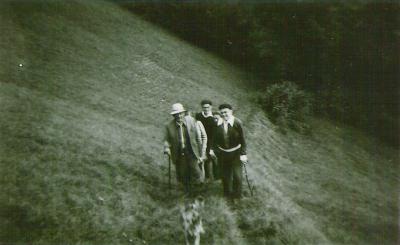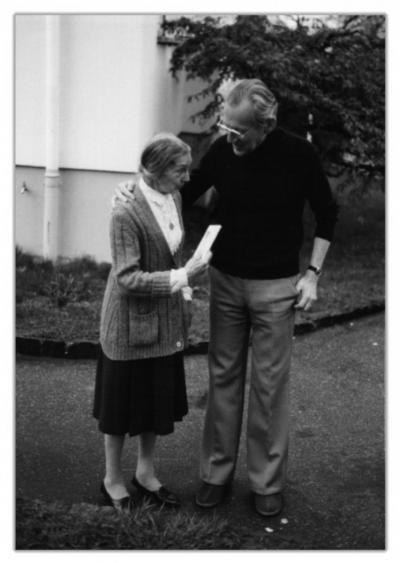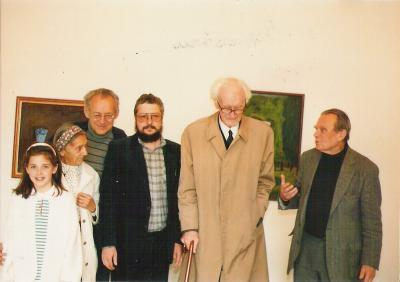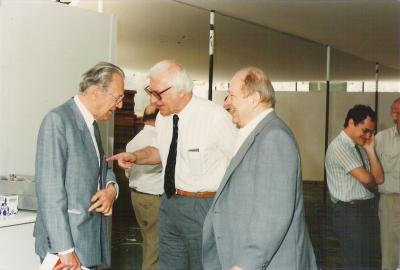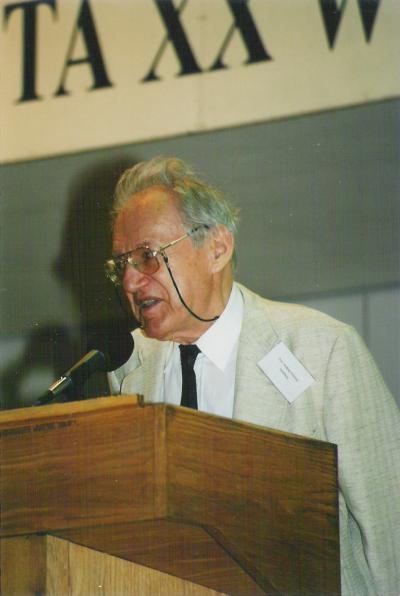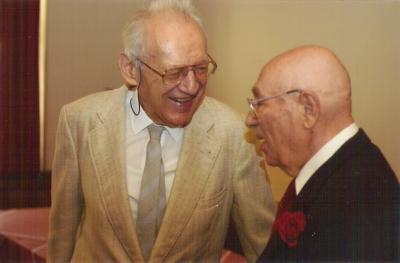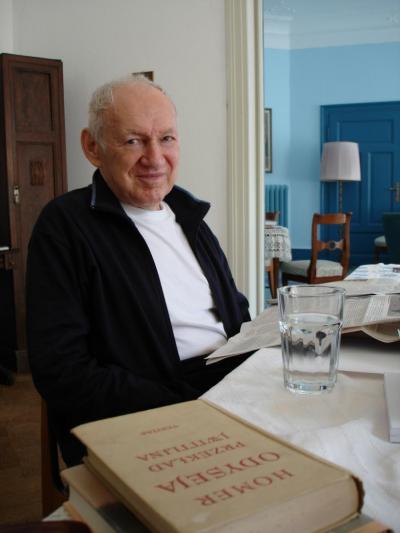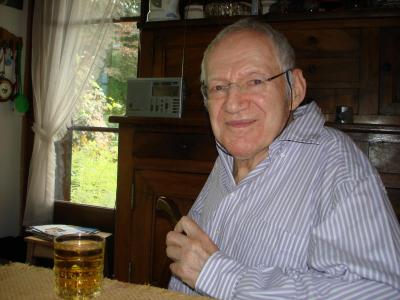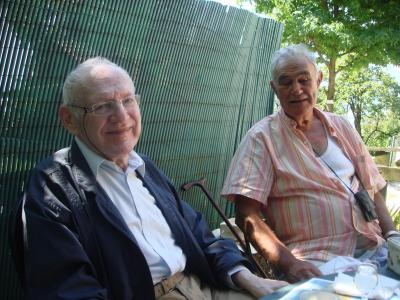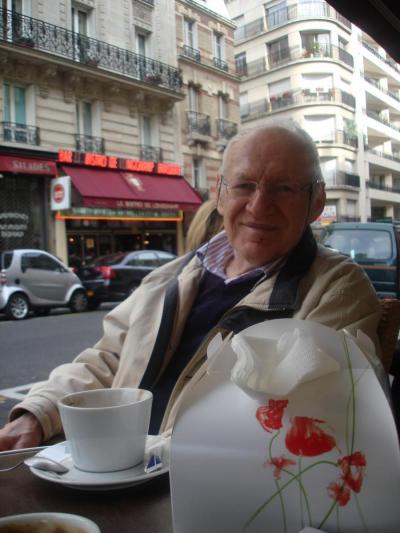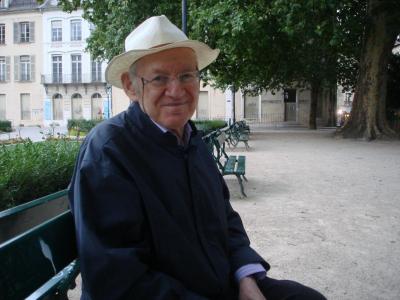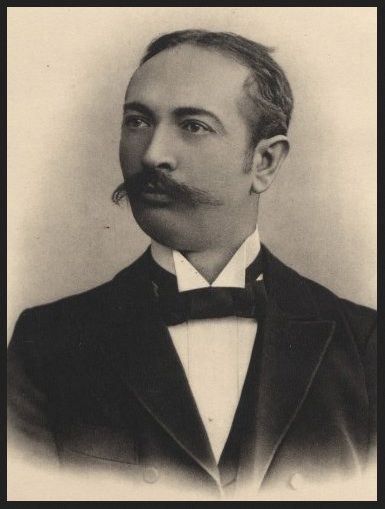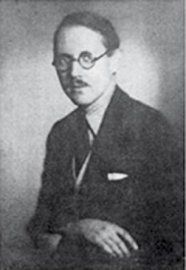Andrzej Vincenz

Andrzej Vincenz was without doubt a polyglot. He spoke fluent German, French, English, Ukrainian, Italian, Romanian and Russian. He could also get by in Czech, Serbo-Croat and even Albanian. His Latin was perfect and his knowledge of ancient Greek was sound. He also knew Old Church Slavic, thanks to a six-month stay in a Greek Catholic monastery in Wales at the end of the 1950s (where he was employed as the prior’s secretary). He was also familiar with the Hutsul dialect. In the last years of his life, he began to teach himself Spanish.
During his time as a professor of linguistics at the Chair of Slavic Studies at Göttingen University, he increasingly turned to the fields of etymology and onomastics. He initiated an interdisciplinary working group on the elements in the Polish language that are borrowed from German. With the publication of their findings by his successor Prof. Gerd Hentschel, the project was celebrated as an Internet publication.
Whilst linguistics had a prominent place in Andrzej Vincenz’s life, he also had a keen interest in literature and political life. And even though he lived and worked in Germany, he maintained his close contact to the milieu of the “Kultura” in Paris. Now and then, he even published essays in the magazine, which usually had some kind of link to Ukrainian themes.
He was also interested in older poetry. In 1989, he published a comprehensive anthology under the title “Helikon sarmacki, wątki i tematy polskiej poezji barokowej” (Sarmatian Helikon, Motifs and Themes in Polish Baroque Poetry) with the Ossoliński National Library, which he provided with an extensive introduction and commentary. For thirty years (1978–2008), Andrzej Vincenz was a member of the jury of the Kościelski Prize. From this perspective, he followed the work of young Polish authors and poets.
Andrzej Vincenz devoted himself completely to his father’s literary estate. In the post-war years, Stanisław Vincenz’s work would most likely not have been recognised without the efforts of the author’s wife, Irena, and his son Andrzej, who initiated the editions and were their first editors. Three out of four volumes of the Hutsul epic story “On the high uplands” by Stanisław Vincenz were published after the war by the publishing house-in-exile “Oficyna Poetów i Malarzy” (OPiM) in London (“Zwada”, English: Dispute, 1970, “Listy z nieba”, English: Letters from Heaven, 1974, “Barwinkowy wianek”, English: Evergreen Wreath 1979), and were only published in Poland after this (by the Pogranicze publishing house). Publishing the books in exile was only possible thanks to donations by friends and admirers of the author's work from around the world. Together with his mother Irena, Andrzej Vincenz contacted publishing houses in Poland and abroad. Their efforts bore fruit and editions of the collected essays of Stanisław Vincenz were published (“Tematy żydowskie”, English: Jewish Themes, 1977 by the OPiM publishing house, “Z perspektywy podróży”, English: From the perspective of a journey, by the Krakow publishing house Znak 1980, “Po stronie dialogu”, English: On the side of dialog, by the PIW publishing house 1983, “Powojenne perypetie Sokratesa”, English: The post-war adventure of Socrates, by the Kraków publishing house Znak 1985). Andrzej Vincenz provided further publications of his father’s books with glossaries, and he wrote the forewords and epilogues.
Vincenz received numerous scientists and intellectuals, predominantly from Poland, at his apartment in Heidelberg and at the Institute for Slavic Studies in Heidelberg and later in Göttingen, Andrzej . He provided them with advice and support and established contacts. He organised conferences and symposia and invited colleagues from Poland to give talks in Germany and to carry out scientific research. Whilst extremely humble himself, he made repeated efforts to honour outstanding authors. He closely monitored the development of the political situation and supported efforts to overthrow communism in Central and Eastern Europe. He was an advocate for the Polish-Ukrainian rapprochement.
